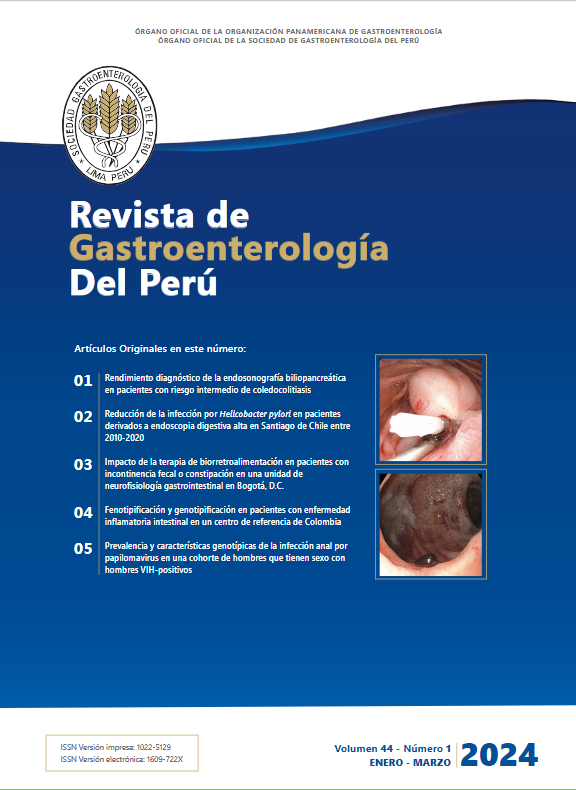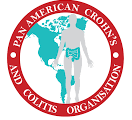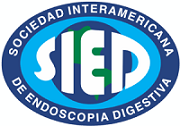Abordaje de la enfermedad por reflujo gastroesofágico refractaria
DOI:
https://doi.org/10.47892/rgp.2024.441.1649Palabras clave:
Enfermedad por reflujo gastroesofágico, Inhibidores de la bomba de protones, TerapéuticaResumen
Un adecuado abordaje de la enfermedad por reflujo gastroesofágico refractaria
imprescindible para lograr el éxito terapéutico. Desde la definición precisa
la detallada caracterización de sus fenotipos, establecerá el camino hacia la
de la terapia óptima para cada paciente. En esta revisión narrativa de la literatura,
proporcionar una síntesis actualizada de la utilidad de las diversas herramientas
y explorar el amplio espectro de opciones terapéuticas, tanto médicas como
disponibles para esta condición.
Descargas
Métricas
Citas
Patel A, Yadlapati R. Diagnosis and management of refractory gastroesophageal reflux disease. Gastroenterol Hepatol (N Y). 2021;17(7):305-15.
Gyawali CP, Yadlapati R, Fass R, Katzka D, Pandolfino J, Savarino E, et al. Updates to the modern diagnosis of GERD: Lyon consensus 2.0. Gut. 2024;73(2):361-371. doi: 10.1136/gutjnl-2023-330616.
Mermelstein J, Chait Mermelstein A, Chait MM. Proton pump inhibitor-refractory gastroesophageal reflux disease: challenges and solutions. Clin Exp Gastroenterol. 2018;11:119-34. doi: 10.2147/ceg.s121056.
Vakil N, Van Zanten SV, Kahrilas P. The Montreal definition and classification of gastroesophageal reflux disease: a global evidence-based consensus. Am J Gastroenterol. 2006;101(8):1900-20; quiz 1943. doi: 10.1111/j.1572-0241.2006.00630.x.
Yadlapati R, DeLay K. Proton pump inhibitor–refractory gastroesophageal reflux disease. Med Clin North Am. 2019;103(1):15-27. doi: 10.1016/j.mcna.2018.08.002.
Rettura F, Bronzini F, Campigotto M, Lambiase C, Pancetti A, Berti G, et al. Refractory Gastroesophageal Reflux Disease: A Management Update. Front Med (Lausanne). 2021;8:765061. doi: 10.3389/fmed.2021.765061.
Naik RD, Meyers MH, Vaezi MF. Treatment of refractory gastroesophageal reflux disease. Gastroenterol Hepatol (N Y). 2020;16(4):196-205.
Zerbib F, Bredenoord AJ, Fass R, Kahrilas PJ, Roman S, Savarino E, et al. ESNM/ANMS consensus paper: Diagnosis and management of refractory gastro-esophageal reflux disease. Neurogastroenterol Motil. 2021;33(4):e14075. doi: 10.1111/nmo.14075.
Gyawali CP, Kahrilas PJ, Savarino E, Zerbib F, Mion F, Smout AJPM, et al. Modern diagnosis of GERD: The Lyon consensus. Gut. 2018;67(7):1351-62. doi: 10.1136/gutjnl-2017-314722.
Chiba N, De Gara CJ, Wilkinson JM, Hunt RH. Speed of healing and symptom relief in grade II to IV gastroesophageal reflux disease: A meta-analysis. Gastroenterology. 1997;112(6):1798-810. doi: 10.1053/gast.1997.v112.pm9178669.
Pandolfino JE, Richter JE, Ours T, Guardino JM, Chapman J, Kahrilas PJ. Ambulatory esophageal pH monitoring using a wireless system. Am J Gastroenterol. 2003;98(4):740-9. doi: 10.1111/j.1572-0241.2003.07398.x.
Yadlapati R, Ciolino JD, Craft J, Roman S, Pandolfino JE. Trajectory assessment is useful when day-to-day esophageal acid exposure varies in prolonged wireless pH monitoring. Dis Esophagus. 2019;32(3):doy077. doi: 10.1093/dote/doy077.
Yadlapati R, Masihi M, Gyawali CP, Carlson DA, Kahrilas PJ, Nix BD, et al. Ambulatory reflux monitoring guides proton pump inhibitor discontinuation in patients with gastroesophageal reflux symptoms: A clinical trial. Gastroenterology. 2021;160(1):174-182.e1. doi: 10.1053/j.gastro.2020.09.013.
Penagini R, Sweis R, Mauro A, Domingues G, Vales A, Sifrim D. Inconsistency in the diagnosis of functional heartburn: Usefulness of prolonged wireless pH monitoring in patients with proton pump inhibitor refractory gastroesophageal reflux disease. J Neurogastroenterol Motil. 2015;21(2):265-72. doi: 10.5056/jnm14075.
Sweis R, Fox M, Anggiansah A, Wong T. Prolonged, wireless pH-studies have a high diagnostic yield in patients with reflux symptoms and negative 24-h catheter-based pH-studies: Wireless pH repeat studies. Neurogastroenterol Motil. 2011;23(5):419-26. doi: 10.1111/j.1365-2982.2010.01663.x.
Hasak S, Yadlapati R, Altayar O, Sweis R, Tucker E, Knowles K, et al. Prolonged wireless pH monitoring in patients with persistent reflux symptoms despite proton pump inhibitor therapy. Clin Gastroenterol Hepatol. 2020;18(13):2912-9. doi: 10.1016/j.cgh.2020.01.031.
Dekel R, Pearson T, Wendel C. Assessment of oesophageal motor function in patients with dysphagia or chest pain - the Clinical Outcomes Research Initiative experience. Aliment
Pharmacol Ther. 2003;18(11-12):1083-9. doi: 10.1046/j.1365-2036.2003.01772.x.
Aziz Q, Fass R, Gyawali CP, Miwa H, Pandolfino JE, Zerbib F. Esophageal disorders. Gastroenterology. 2016;150(6):1368-79. doi: 10.1053/j.gastro.2016.02.012.
Garbarino S, Horton A, Patel A. The utility of esophageal motility testing in gastroesophageal reflux disease (GERD). Curr Gastroenterol Rep. 2019;21(8):37. doi: 10.1007/s11894-019-0704-7.
Yadlapati R, Tye M, Roman S, Kahrilas PJ, Ritter K, Pandolfino JE. Postprandial high-resolution impedance manometry identifies mechanisms of nonresponse to proton pump inhibitors. Clin Gastroenterol Hepatol. 2018;6(2):211-218.e1. doi: 10.1016/j.cgh.2017.09.011.
Reddy CA, Patel A, Gyawali CP. Impact of symptom burden and health-related quality of life (HRQOL) on esophageal motor diagnoses. Neurogastroenterol Motil. 2017;29(4):10.1111/nmo.12970. doi: 10.1111/nmo.12970.
Rengarajan A, Bolkhir A, Gor P. Esophagogastric junction and esophageal body contraction metrics on high-resolution manometry predict esophageal acid burden. Neurogastroenterol Motil. 2018;30(5):e13267. doi: 10.1111/nmo.13267.
Martinucci I, Savarino EV, Pandolfino JE, Russo S, Bellini M, Tolone S, et al. Vigor of peristalsis during multiple rapid swallows is inversely correlated with acid exposure time in patients with NERD. Neurogastroenterol Motil. 2016;28(2):243-50. doi: 10.1111/nmo.12719.
Daum C, Sweis R, Kaufman E. Failure to respond to physiologic challenge characterizes esophageal motility in erosive gastro-esophageal reflux disease. Neurogastroenterol Motil. 2011;23(6):517-e200. doi: 10.1111/j.1365-2982.2011.01669.x.
Tolone S, De Cassan C, De Bortoli N. Esophagogastric junction morphology is associated with a positive impedance-pH monitoring in patients with GERD. Neurogastroenterol Motil. 2015;27(8):1175-82. doi: 10.1111/nmo.12606.
Nicodeme F, Pipa-Muniz M, Khanna K. Quantifying esophagogastric junction contractility with a novel HRM topographic metric, the EGJ-Contractile Integral: normative values and prelim- inary evaluation in PPI non-responders. Neurogastroenterol Motil. 2014;26(3):353-60. doi: 10.1111/nmo.12267.
Chan WW, Haroian LR, Gyawali CP. Value of preoperative esophageal function studies before laparoscopic antireflux surgery. Surg Endosc. 2011;25(9):2943- 9. doi: 10.1007/s00464-011-1646-9.
Stoikes N, Drapekin J, Kushnir V, Shaker A, Brunt LM, Gyawali CP. The value of multiple rapid swallows during preoperative esophageal manometry before laparoscopic antireflux surgery. Surg Endosc. 2012;26(12):3401-7. doi: 10.1007/s00464-012-2350-0.
Mello MD, Shriver AR, Li Y, Patel A, Gyawali CP. Ineffective esophageal motility phenotypes following fundoplication in gastroesophageal reflux disease. Neurogastroenterol Motil. 2016;28(2):292-8. doi: 10.1111/nmo.12728.
Slater BJ, Collings A, Dirks R, Gould JC, Qureshi AP, Juza R, et al. Multi-society consensus conference and guideline on the treatment of gastroesophageal reflux disease (GERD). Surg Endosc. 2023;37(2):781-806. doi: 10.1007/s00464-022-09817-3.
Gyawali CP, Roman S, Bredenoord AJ. International GERD Consensus Working Group. Classification of esophageal motor findings in gastro-esophageal reflux disease: conclusions from an international consensus group. Neurogastroenterol Motil. 2017;29(12). doi: 10.1111/nmo.13104.
Tutuian R, Vela MF, Hill EG, Mainie I, Agrawal A, Castell DO. Characteristics of symptomatic reflux episodes on Acid suppressive therapy. Am J Gastroenterol. 2008;103(5):1090-6. doi: 10.1111/j.1572-0241.2008.01791.x.
Vela MF, Camacho-Lobato L, Srinivasan R, Tutuian R, Katz PO, Castell DO. Simultaneous intraesophageal impedance and pH measurement of acid and nonacid gastroesophageal reflux: effect of omeprazole. Gastroenterology. 2001;120(7):1599-606. doi: 10.1053/gast.2001.24840.
Rogers BD, Valdovinos LR, Crowell MD, Bell R, Vela MF, Gyawali CP. Number of reflux episodes on pH-impedance monitoring associates with improved symptom outcome and treatment satisfaction in gastro-oesophageal reflux disease (GERD) patients with regurgitation. Gut. 2021;70(3):450-5. doi: 10.1136/gutjnl-2020-321395.
Abdallah J, George N, Yamasaki T. Most patients with gastroesophageal reflux disease who failed proton pump inhibitor therapy also have functional esophageal disorders. Clin Gastroenterol Hepatol. 2019;17(6):1073-1080.e1. doi: 10.1016/j.cgh.2018.06.018.
Roman S, Keefer L, Imam H, Korrapati P, Mogni B, Eident K, et al. Majority of symptoms in esophageal reflux PPI non-responders are not related to reflux. Neurogastroenterol Motil. 2015;27(11):1667-74. doi: 10.1111/nmo.12666.
Ooi JLS, Vardar R, Sifrim D. Supragastric belching. Curr Opin Gastroenterol. 2016;32(4):302-9. doi: 10.1097/mog.0000000000000276.
Nakagawa K, Sawada A, Hoshikawa Y, Nikaki K, Sonmez S, Woodland P, et al. Persistent postprandial regurgitation vs rumination in patients with refractory astroesophageal reflux disease symptoms: Identification of a distinct rumination pattern using ambulatory impedance-pH monitoring: Identification of a distinct rumination pattern using ambulatory impedancepH monitoring. Am J Gastroenterol. 2019;114(8):1248-55. doi: 10.14309/ajg.0000000000000295.
Kaltenbach T, Crockett S, Gerson LB. Are lifestyle measures effective in patients with gastroesophageal reflux disease? An evidence-based approach: An evidence-based approach. Arch Intern Med. 2006;166(9):965-71. doi: 10.1001/archinte.166.9.965.
Ness-Jensen E, Lindam A, Lagergren J. Tobacco smoking cessation and improved gastroesophageal reflux: a prospective population- based cohort study: the HUNT study. Am J Gastroenterol. 2014;109(2):171-7. doi: 10.1038/ajg.2013.414.
Khan BA, Sodhi JS, Zargar SA, Javid G, Yattoo GN, Shah A, et al. Effect of bed head elevation during sleep in symptomatic patients of nocturnal gastroesophageal reflux: Effect of bed head elevation on reflux. J Gastroenterol Hepatol. 2012;27(6):1078-82. doi: 10.1111/j.1440-1746.2011.06968.x.
Person E, Rife C, Freeman J. A Novel Sleep positioning devicereduces gastroesophageal reflux: a Randomized Controlled Trial. JClin Gastroenterol. 2015;49(8):655-9. doi: 10.1097/MCG.0000000000000359.
Aanen MC, Bredenoord AJ, Smout AJPM. Effect of dietary sodium chloride on gastro-esophageal reflux: a randomized controlled trial. Scand J Gastroenterol. 2006;41(10):1141-6. doi: 10.1080/00365520600615864.
Halland M, Bharucha AE, Crowell MD, Ravi K, Katzka DA. Effects of diaphragmatic breathing on the pathophysiology and treatment of upright gastroesophageal reflux: A randomized controlled trial: A randomized controlled trial. Am J Gastroenterol. 2021;116(1):86-94. doi: 10.14309/ajg.0000000000000913.
Mehta RS, Nguyen LH, Ma W, Staller K, Song M, Chan AT. Association of diet and lifestyle with the risk of gastroesophageal reflux disease symptoms in US women. JAMA Intern Med. 2021;181(4):552-4. doi: 10.1001/jamainternmed.2020.7238.
Yamashita H, Ashida K, Fukuchi T, Nagatani Y, Koga H, Senda K, et al. Combined pH-impedance monitoring and high-resolution manometry of Japanese patients treated with protonpump inhibitors for persistent symptoms of non-erosive reflux disease. J Smooth Muscle Res. 2012;48(5-6):125-35. doi: 10.1540/jsmr.48.125.
Van Soest EM, Siersema PD, Dieleman JP, Sturkenboom MC, Kuipers EJ. Persistence and adherence to proton pump inhibitors in daily clinical practice. Aliment Pharmacol Ther. 2006;24(2):377-85. doi: 10.1111/j.1365-2036.2006.02982.x.
Johnson DA, Lauritsen K, Junghard O, Levine D. Evaluation of symptoms is an unreliable predictor of relapse of erosive esophagitis in patients receiving maintenance PPI therapy. Gastroenterology. 2003;124(4):A540. doi: 10.1016/s0016-5085(03)82730-0.
Fass R, Thomas S, Traxler B, Sostek M. Patient reported outcome of heartburn improvement: doubling the proton pump inhibitor (PPI) dose in patient who failed standard dose PPI vs. switching to a different PPI. Gastroenterology. 2004;146:A37.
Gunaratnam NT, Jessup TP, Inadomi J, Lascewski DP. Sub-optimal proton pump inhibitor dosing is prevalent in patients with poorly controlled gastro-oesophageal reflux disease. Aliment Pharmacol Ther. 2006;23(10):1473-7. doi: 10.1111/j.1365-2036.2006.02911.x.
Chey WD, Inadomi JM, Booher AM, Sharma VK, Fendrick AM, Howden CW. Primary-care physicians’ perceptions and practices on the management of GERD: results of a national survey. Am J Gastroenterol. 2005;100(6):1237-42. doi: 10.1111/j.1572-0241.2005.41364.x.
Fass R, Sontag SJ, Traxler B, Sostek M. Treatment of patients with persistent heartburn symptoms: A double-blind, randomized trial. Clin Gastroenterol Hepatol. 2006;4(1):50-6. doi: 10.1016/s1542-3565(05)00860-8.
Graham DY, Tansel A. Interchangeable use of proton pump inhibitors based on relative potency. Clin Gastroenterol Hepatol. 2018;16:800–8.
Zuluaga N, Ardila O, Guevara LG. Uso práctico de inhibidores de bomba de protones. Med UPB. 2022;41(1):61-6. doi: 10.18566/medupb.v41n1.a08.
Edwards SJ, Lind T, Lundell L. Systematic review: proton pump inhibitors (PPIs) for the healing of reflux oesophagitis - a comparison of esomeprazole with other PPIs. Aliment Pharmacol Ther. 2006;24(5):743-50. doi: 10.1111/j.1365-2036.2006.03074.x.
Hagymási K, Müllner K, Herszényi L, Tulassay Z. Update on the pharmacogenomics of proton pump inhibitors. Pharmacogenomics. 2011;12(6):873-88. doi: 10.2217/pgs.11.4.
Arévalo-Galvis A, Otero-Regino WA, Ovalle-Celis GN, Rodríguez-Gómez ER, Trespalacios-Rangel AA. Prevalence of CYP2C19 polymorphism in Bogotá, Colombia: The first report of allele *17. PLoS One. 2021;16(1):e0245401. doi: 10.1371/journal.pone.0245401.
Ichikawa H, Sugimoto M, Sugimoto K, Andoh A, Furuta T. Rapid metabolizer genotype of CYP2C19 is a risk factor of being refractory to proton pump inhibitor therapy for reflux esophagitis. J Gastroenterol Hepatol. 2016;31(4):716-26. doi: 10.1111/jgh.13233.
Kinoshita Y, Kato M, Fujishiro M. Efficacy and safety of twicedaily rabeprazole maintenance therapy for patients with reflux esophagitis refractory to standard once-daily proton pump inhibitor: the Japan-based EXTEND study. J Gastroenterol. 2018;53(7):834-844. doi: 10.1007/s00535-017-1417-z.
Cheng Y, Liu J, Tan X, Dai Y, Xie C, Li X, et al. Direct comparison of the efficacy and safety of vonoprazan versus proton-pump inhibitors for gastroesophageal reflux disease: A systematic review and meta-analysis. Dig Dis Sci. 2021;66(1):19-28. doi: 10.1007/s10620-020-06141-5.
Laine L, DeVault K, Katz P, Mitev S, Lowe J, Hunt B, et al. Vonoprazan versus lansoprazole for healing and maintenance of healing of erosive esophagitis: A randomized trial. Gastroenterology. 2023;164(1):61-71. doi: 10.1053/j.gastro.2022.09.041.
Fass R, Frazier R. The role of dexlansoprazole modifiedrelease in the management of gastroesophageal reflux disease. Therap Adv Gastroenterol. 2017;10(2):243-51. doi: 10.1177/1756283x16681701.
Kukulka M, Nudurupati S, Perez MC. Bioavailability of dexlansoprazole delayed-release capsule granules when administered via nasogastric tube or orally via syringe. Clin Exp Gastroenterol. 2018;11:381-9. doi: 10.2147/CEG.S138580.
Rackoff A, Agrawal A, Hila A. Histamine-2 receptor antagonists at night improve gastroesophageal reflux disease symptoms for patients on proton pump inhibitor therapy. Dis Esophagus. 2005;18(6):370-3. doi: 10.1111/j.1442-2050.2005.00518.x.
Mainie I, Tutuian R, Castell DO. Addition of a H2 receptor antagonist to PPI improves acid control and decreases nocturnal acid breakthrough. J Clin Gastroenterol. 2008;42(6):676-9. doi: 10.1097/mcg.0b013e31814a4e5c.
Rackoff A, Agrawal A, Hila A, Mainie I, Tutuian R, Castell DO. Histamine-2 receptor antagonists at night improve gastroesophageal reflux disease symptoms for patients on proton pump inhibitor therapy. Dis Esophagus. 2005;18(6):370-3. doi: 10.1111/j.1442-2050.2005.00518.x.
Dal-Paz K, Moraes-Filho JP, Navarro-Rodriguez T, Eisig JN, Barbuti R, Quigley EMM. Low levels of adherence with proton pump inhibitor therapy contribute to therapeutic failure in gastroesophageal reflux disease: Adherence in gastroesophageal reflux disease. Dis Esophagus. 2012;25(2):107-13. doi: 10.1111/j.1442-2050.2011.01227.x.
Fackler WK, Ours TM, Vaezi MF, Richter JE. Long-term effect of H2RA therapy on nocturnal gastric acid breakthrough. Gastroenterology. 2002;122(3):625-32. doi: 10.1053/gast.2002.31876.
McGwin G. The association between ranitidine use and gastrointestinal cancers. Cancers (Basel). 2020;13(1):24. doi: 10.3390/cancers13010024.
Zentilin P, Dulbecco P, Savarino E, Parodi A, Iiritano E, Bilardi C, et al. An evaluation of the antireflux properties of sodium alginate by means of combined multichannel intraluminal impedance and pH-metry. Aliment Pharmacol Ther. 2005;21(1):29-34. doi: 10.1111/j.1365-2036.2004.02298.x.
Reimer C, Lødrup AB, Smith G, Wilkinson J, Bytzer P. Randomised clinical trial: alginate (Gaviscon Advance) vs. placebo as add-on therapy in reflux patients with inadequate response to a once daily proton pump inhibitor. Aliment Pharmacol Ther. 2016;43(8):899-909. doi: 10.1111/apt.13567.
Hershcovici T, Fass R. Pharmacological management of GERD: where does it stand now? Trends Pharmacol Sci. 2011;32(4):258-64. doi: 10.1016/j.tips.2011.02.007.
Simon B, Mueller P. Comparison of the effect of sucralfate and ranitidine in reflux esophagitis. Am J Med. 1987;83(3B):43-7.
Hameeteman W, d Boomgaard DM v, Dekker W, Schrijver M, Wesdorp IC, Tytgat GN. Sucralfate versus cimetidine in reflux esophagitis. A single-blind multicenter study. J Clin Gastroenterol. 1987;9(4):390-4. doi: 10.1097/00004836-198708000-00007.
Richter JE. Review article: the management of heartburn in pregnancy. Aliment Pharmacol Ther. 2005;22(9):749-57. doi: 10.1111/j.1365-2036.2005.02654.x.
Hussain ZH, Henderson EE, Maradey-Romerao C, George N, Fass R, Lacy BE. The proton pump inhibitor non-responder: A clinical conundrum. Clin Transl Gastroenterol. 2015;6(8):e106. doi: 10.1038/ctg.2015.32.
Savarino V, Pace F, Scarpignato C. Randomised clinical trial: mucosal protection combined with acid suppression in the treatment of non-erosive reflux disease - efficacy of Esoxx, a hyaluronic acid chondroitin sulphate based bioadhesive formulation. Aliment Pharmacol Ther. 2017;45(5):631-642. doi: 10.1111/apt.13914.
Li S, Shi S, Chen F, Lin J. The effects of baclofen for the treatment of gastroesophageal reflux disease: a meta- analysis of controlled trials. Gastroenterol Res Pract. 2014;2014:307805. doi: 10.1155/2014/307805.
Fass R, Shapiro M, Dekel R, Sewell J. Systematic review: protonpump inhibitor failure in gastro-oesophageal reflux disease--where next? Aliment Pharmacol Ther. 2005;22(2):79-94. doi: 10.1111/j.1365-2036.2005.02531.x.
Murillo-Godínez G. Reflujo duodenogástrico (biliar, alcalino). Med Int Méx. 2023;39(1):127-40. doi: 10.24245/mim.v39i1.5120.
Ren L-H. Addition of prokinetics to PPI therapy in gastroesophageal reflux disease: A meta-analysis. World J Gastroenterol. 2014;20(9):2412-9. doi: 10.3748/wjg.v20.i9.2412.
Katz PO, Dunbar KB, Schnoll-Sussman FH, Greer KB, Yadlapati R, Spechler SJ. ACG clinical guideline for the diagnosis and management of gastroesophageal reflux disease. Am J Gastroenterol. 2022;117(1):27-56. doi: 10.14309/ajg.0000000000001538.
Moore M. Gastroesophageal reflux disease: A review of surgical decision making. World J Gastrointest Surg. 2016;8(1):77-83. doi: 10.4240/wjgs.v8.i1.77.
Spechler SJ, Hunter JG, Jones KM, Lee R, Smith BR, Mashimo H, et al. Randomized trial of medical versus surgical treatment for refractory heartburn. N Engl J Med. 2019;381(16):1513-23. doi: 10.1056/NEJMoa1811424.
Fuchs KH, Babic B, Breithaupt W, Dallemagne B, Fingerhut A, Furnee E, et al. EAES recommendations for the management of gastroesophageal reflux disease. Surg Endosc. 2014;28(6):1753-73. doi: 10.1007/s00464-014-3431-z.
Yadlapati R, Hungness ES, Pandolfino JE. Complications of antireflux surgery. Am J Gastroenterol. 2018;113(8):1137-47. doi: 10.1038/s41395-018-0115-7.
Zhou T, Harnsberger C, Broderick R, Fuchs H, Talamini M, Jacobsen G,et al. Reoperation rates after laparoscopic fundoplication. Surg Endosc. 2015;29(3):510-4. doi: 10.1007/s00464-014-3660-1.
Spechler SJ, Lee E, Ahnen D, Goyal RK, Hirano I, Ramirez F, et al. Long-term outcome of medical and surgical therapies for gastroesophageal reflux disease: Follow-up of a randomized controlled trial. JAMA. 2001;285(18):2331-8. doi: 10.1001/jama.285.18.2331.
Håkanson BS, Lundell L, Bylund A, Thorell A. Comparison of laparoscopic 270° posterior partial fundoplication vs total fundoplication for the treatment of gastroesophageal reflux disease: A randomized clinical trial. JAMA Surg. 2019;154(6):479-486. doi: 10.1001/jamasurg.2019.0047.
Markar S, Andreou A, Bonavina L, Florez ID, Huo B, Kontouli K-M, et al. UEG and EAES rapid guideline: Update systematic review, network meta-analysis, CINeMA and GRADE assessment, and evidence-informed European recommendations on surgical management of GERD. United European Gastroenterol J. 2022;10(9):983-98. doi: 10.1002/ueg2.12318.
Varela JE, Hinojosa MW, Nguyen NT. Laparoscopic fundoplication com- pared with laparoscopic gastric bypass in morbidly obese patients with gastro- esophageal reflux disease. Surg Obes Relat Dis. 2009;5(2):139-43. doi: 10.1016/j.soard.2008.08.021.
Madalosso CAS, Gurski RR, Callegari-Jacques SM, Navarini D, Mazzini G, Pereira M da S. The impact of gastric bypass on gastroesophageal reflux disease in morbidly obese patients. Ann Surg. 2016;263(1):110-6. doi: 10.1097/SLA.0000000000001139.
Pauwels A, Boecxstaens V, Andrews CN, Attwood SE, Berrisford R, Bisschops R, et al. How to select patients for antireflux surgery? The ICARUS guidelines (international consensus regarding preoperative examinations and clinical characteristics assessment to select adult patients for antireflux surgery). Gut. 2019;68(11):1928-41. doi: 10.1136/gutjnl-2019-318260.
Descargas
Publicado
Cómo citar
Número
Sección
Licencia
Derechos de autor 2024 Nicolás Zuluaga Arbeláez, Albis Hani, Jorge Espinoza-Ríos

Esta obra está bajo una licencia internacional Creative Commons Atribución 4.0.
Revista de Gastroenterología del Perú by Sociedad Peruana de Gastroenterología del Perú is licensed under a Licencia Creative Commons Atribución 4.0 Internacional..
Aquellos autores/as que tengan publicaciones con esta revista, aceptan los términos siguientes:
- Los autores/as conservarán sus derechos de autor y garantizarán a la revista el derecho de primera publicación de su obra, el cuál estará simultáneamente sujeto a la Licencia de reconocimiento de Creative Commons que permite a terceros compartir la obra siempre que se indique su autor y su primera publicación esta revista.
- Los autores/as podrán adoptar otros acuerdos de licencia no exclusiva de distribución de la versión de la obra publicada (p. ej.: depositarla en un archivo telemático institucional o publicarla en un volumen monográfico) siempre que se indique la publicación inicial en esta revista.
- Se permite y recomienda a los autores/as difundir su obra a través de Internet (p. ej.: en archivos telemáticos institucionales o en su página web) antes y durante el proceso de envío, lo cual puede producir intercambios interesantes y aumentar las citas de la obra publicada. (Véase El efecto del acceso abierto).




















 2022
2022 